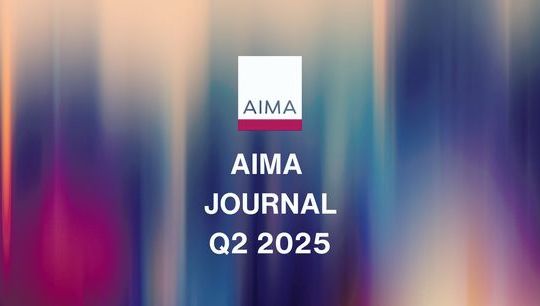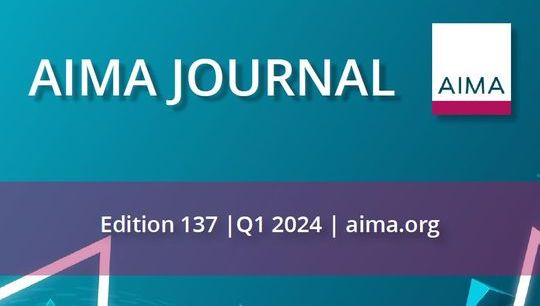Confidential, quicker and cheaper dispute resolution: arbitration
By Stuart Dutson, Partner and Alexander Sussman, Associate, Simmons & Simmons
Published: 13 July 2018
Typical asset management disputes include allegations of breach of mandate, misselling, breach of duty, misstatements, misleading disclosures, negligent management and/or misreporting.
The asset management industry generally resolves its disputes via litigation, i.e. open court proceedings. Indeed, a recent survey by a leading arbitral institution (the International Chamber of Commerce, or 'ICC') suggests that arbitration is rarely used within the asset management industry. The ICC reports that in some instances, the existence of arbitration was completely unknown to survey participants.
Arbitration is an alternative to court proceedings as a means of resolving disputes. It is based on the parties’ agreement: instead of agreeing to submit their disputes to the courts of a specific jurisdiction in their contracts, parties agree to submit their disputes to a ‘private’ individual or tribunal. This usually forms part of the parties’ main contract, although it is technically a separate agreement.
Rather than being bound by the rules of procedure applicable in a specific court system (including rules on disclosure or discovery of documents), parties who have opted for arbitration may choose the rules of one of the many arbitration institutions or set their own rules of procedure and determine, for example, the composition of the tribunal, the number of written submissions, applicable deadlines, the rules of disclosure and limitations on rights to appeal (to the extent permitted by law). One of the potential advantages of arbitration is that the opportunity to challenge or appeal an arbitral award can be heavily circumscribed, which means a quicker final determination.
A key benefit of arbitration is the ability to keep disputes confidential. This avoids the brand and reputation risks that open and public disputes with clients bring. A confidential process and outcome reduce the risk of a dispute being played out in a public forum and is the reason why we often see arbitration clauses included in partnership agreements in the asset management industry. Arbitration enables internal issues to be dealt with discreetly and confidentially without the publicity that public court proceedings entail. However, the publicity that litigation attracts is not a concern that is unique to internal disputes and the confidential nature of arbitration could be of significant strategic benefit to a wide range of disputes experienced by asset managers. For example, just the threat of publicising a dispute can often be used to apply pressure on asset managers to negotiate a settlement, and there is a perception in claimant litigation firms that asset managers can be a soft touch when the client can threaten public court proceedings – pressure that an arbitration clause can go a long way to alleviating.
Moreover, in arbitration there is only limited disclosure. Generally, parties need only disclose the documents upon which they rely and are not obliged to search for further documents or disclose adverse documents. Parties may make specific requests for further documents by application to the arbitral tribunal but this represents a significant hurdle to additional disclosure. Consequently, the large scale electronic disclosure exercises which are common in court litigation are almost unheard of in arbitration and the associated legal costs are avoided.
Arbitration would also allow the asset management industry to have its disputes heard by subject specialists. Allegations of breach of duty under English law, for example, need to be determined by reference to the opinions of reasonably informed and competent members of the investment management profession, with allowances made for the difficulties in circumstances in which professional judgements have to be made. The relevant investment decisions may have been made against the background of voluminous and complex regulation applicable to alternative investment managers, for example, the EU Alternative Investment Fund Managers Directive.
With this in mind, parties may well prefer to have that dispute heard by someone with a background in investment management. Arbitration permits this flexibility: parties can opt to refer disputes to an arbitration institution which specialises in financial services, specify that the arbitrators must have experience of, or expertise in, investment management or opt for rules which allow them to nominate a member of the tribunal.
In addition, arbitration can offer a fast-track method of dispute resolution. The London Arbitration Club Financial Sector working group has developed an expedited dispute procedure. The procedure anticipates the handing down of an award within 6 months of the referral of the dispute to arbitration. It also requires that arbitrators nominated by the parties should have “experience and/or expertise related to financial services”.
Finally, arbitration awards are generally easier to enforce out of jurisdiction than English courts judgments. Over 140 countries have signed and ratified the 1958 New York Convention, which provides that signatory countries should, save in limited circumstances, enforce arbitral awards as if they are judgments of their own courts. There is no similar convention in place providing for the enforcement of English court judgments outside of the EU and there is uncertainty as to the position even within the EU post-Brexit. Therefore, parties seeking to enforce English court judgments abroad may find that they have to start fresh proceedings.
The adoption of arbitration clauses is, of course, not without its challenges. In particular, in order to benefit from the speed and simplicity offered by arbitration, it is important that all potential parties to typical asset management disputes are bound into the same process. For example, it is important to ensure that the dispute resolution clauses in contractual documents in place between a fund and its investors include consolidation provisions and mirror those in the contracts in place between the fund and the investment manager and other service providers in order that the disputes that may arise can be dealt with in a single forum. However these hurdles are by no means insurmountable, and comparatively easy to navigate for new fund start-ups, and the collective benefits of arbitration – confidentiality and a quicker, cheaper process with little or no disclosure/discovery – make it a very attractive proposition for the investment management industry to consider, particularly in a Brexit environment.
To contact the authors:
Alexander Sussman, Associate at Simmons & Simmons: [email protected]
Stuart Dutson, Partner at Simmons & Simmons: [email protected]








